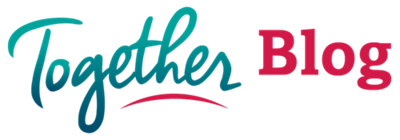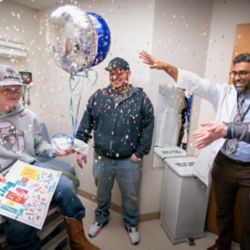Getting the Facts About My Care and Treatment
Being diagnosed with papillary thyroid cancer at 16 years old was scary. I knew cancer and follow-up care were going to be part of my life forever. Learning about my cancer diagnosis and treatment helped me feel more comfortable.
At first, researching your cancer can be intimidating. You might be scared to learn about what treatment is like. The medical language and the amount of information can be overwhelming too. That is why finding resources that are clear and understandable is critical. These resources help you become more knowledgeable about your care and treatment. This process is part of something called personal health literacy.
Personal health literacy is your ability to find, understand, and use information to make decisions about your health, according to the Centers for Disease Control and Prevention. It is vital for patients and their families to understand their cancer and treatments. Developing personal health literacy is an important part of cancer treatment.
Learning from My Care Team
My health care team guided me through the treatment process. My team explained thyroid cancer to me. They gave me all the information I needed about my medication and surgery. But they also encouraged me to research my cancer and ask questions.
I was encouraged to discuss my emotions and feelings toward being in treatment. We found positive ways for me to handle the changes. They taught me how to manage my weight and made sure I knew the importance of living a healthy lifestyle.
Taking the Next Steps
Treatment for thyroid cancer includes surgery and a radiation treatment called radioactive iodine. The goal of both treatments is to remove the thyroid and, with it, the cancer.
After my surgery, the next step in my plan was radioactive iodine treatment. Unfortunately, my body did not react to this treatment. Since this is not typical, it was important for me to research my next step.
Using Health Literacy Everyday
Being able to understand health information is important for me because of the medication I must take. Your body cannot function without a thyroid. So, I take a thyroid drug every day.
Most of the time, this medicine has few side effects. But sometimes it can make your heart race if the dose is not exactly right. Weight loss or gain can mean I need to adjust the dose, too.
These are all things I had to learn during the treatment process. The ability to watch and understand side effects helps me work with my care team to make sure the doses are right.
Managing Your Long-Term Health
Understanding health information is vital because it helps you make your own medical decisions. Listening to your doctors and health care team is important. But it will not be useful unless you understand your cancer.
When I turned 18 and went to college, it became my job to discuss treatments with my doctors. I was in a different city than my parents. So, I had to step up and take charge of my health.
Luckily, my health care team and family had always discussed health literacy. So, I knew about my cancer and past treatments. I could tell new doctors about my medical history.
Empowering Confident Choices
As a child or teen, you may not want to pay attention to what is happening. It is scary. But understanding your health care choices can help you feel in control. Knowing what will happen makes treatment a little less scary. You will be able to make informed decisions.
When researching your cancer and treatments, make sure the sources are trustworthy. Patients and families may not know where to find simple and reliable content. Start by asking your health care providers if there are any resources they suggest. You can also ask families who have been through similar experiences.
Learn on Together by St. Jude
Together by St. Jude, a comprehensive online resource about childhood and adolescent cancer, is a great resource.
Together includes:
- Medical information that is reviewed by St. Jude Children’s Research Hospital health care providers
- Stories and experiences from families of childhood cancer patients
- Practical tips and suggestions from both specialists, family members, and patients
Together covers topics ranging from side effects to emotional support. It gives you reliable articles and shared stories of hope.
October is Health Literacy Month. It is dedicated to recognizing why having understandable health information is important. Providing easy and accessible health care information helps you better understand your health and how to use the information correctly.





